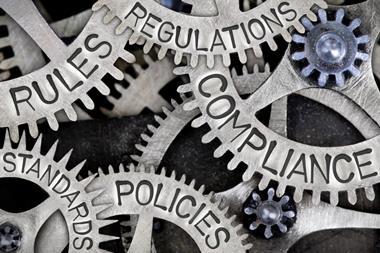Recent developments in criminal law will affect companies and their directors, and will increase their corporate accountability. New laws now hold directors individually responsible for anti-competitive behaviour.
For the first time, they face risk of imprisonment. The UK government has also announced forthcoming legislation on corporate manslaughter.
This will retain the focus on the companies themselves, targeting the pockets of owners and shareholders rather than extending the liability of directors. The question is whether holding the company responsible will be enough to hold decision makers accountable, or whether individual responsibility is key to ensuring compliance.
Companies have long been liable to fines for 'cartel behaviour' under the Competition Act 1988. Under the Enterprise Act 2002:
- individuals face imprisonment if they dishonestly engage in price fixing, market sharing, limiting production or supply or bid-rigging. This new offence carries a maximum sentence of five years imprisonment and/or an unlimited fine.
- there is a new offence of falsifying, concealing or destroying documents if a person knows or suspects that they would be relevant, and if he knows or suspects an investigation is being conducted or likely to be conducted.
If fear of investigation spreads, as independent schools, garages and credit card companies are added to the widening net of the Office of Fair Trading, nervous directors need to tread with care if they think they may have done something wrong.
Furthermore, under this Act, directors can be extradited - to the US in particular. The former chairman of Sothebys, Alfred Taubman, was imprisoned in New York for a year after Christie's blew the whistle on an agreement between them to fix commissions paid by clients. Parties to any such arrangements will be actively encouraged to inform on fellow conspirators in exchange for 'non action letters' and immunity from prosecution. With the new extradition provisions, it will be important to blow the whistle on all agreements abroad, as otherwise those concerned could find themselves pursued under anti-competition laws in other jurisdictions. This legislation is recognition that fining companies may not itself be a sufficient deterrent.
Corporate manslaughter
What then of deaths caused by the activity of business? Corporations are notoriously difficult to prosecute under the current provisions. It must be proved that a senior member of the company ('a guiding mind and will of the company') is guilty of manslaughter before the company can be convicted. In the Herald of Free Enterprise case, there was a failure to pinpoint the controlling mind, even though Mr Justice Sheen said that P&O was 'infected from top to bottom with the disease of sloppiness' and 'staggering complacency'. On the corporate front, the Government now proposes a new offence of corporate killing.Only eight individual directors have ever been prosecuted for manslaughter.
In 1996, the Law Commission recommended that action should be taken directly against culpable directors, not just the company. However, in its proposals last year the Government decided that personal liability should not in fact be extended beyond the current laws. The Confederation of British Industry and the Institute of Directors have thus succeeded in arguing that there should be collective corporate responsibility, rather than a pursuit of individual directors.
That said, individuals are held liable for health and safety offences committed by the company where they have been 'committed with the consent or connivance of, or have been attributable to any neglect on the part of, any director, manager, secretary or other similar officer of the body corporate.' Offences carry penalties up to a £20,000 fine. In reality, deaths in the workplace often result in convictions only under the Health and Safety Act, due to the difficulties in the law.
The Act imposes a duty on an employer (a term that arguably includes executive directors) to 'take reasonable care for the health and safety of himself and of any persons who may be affected by his acts or omissions at work'. This is an attempt to impose direct responsibility on directors where there has been neglect or indifference on their part.
The story so far
Currently, companies can be prosecuted for manslaughter, but liability is linked to individual responsibility. This involves first establishing that there is sufficient evidence to convict a senior manager or director of manslaughter. Once an individual is identified as the controlling mind it has to be proven that he is guilty of 'gross negligence'.So the company can only be prosecuted if such a person can be found and successfully prosecuted. However, in successive cases the prosecution have failed to identify a key individual whose gross negligence has caused death. Successful prosecutions have invariably been in relation to small companies, where it has been easier to find the controlling mind. In large corporations, lines of responsibility are often blurred.
In 1999, John Prescott launched a consultation called 'Revitalising Health and Safety at Work' and suggested that organisations should appoint a director for health and safety. The recent Company Directors (Health and Safety) Bill attempted to make such an appointment mandatory, but failed for lack of parliamentary time.
Hence directors do not have duties and obligations in relation to health and safety. Only the 'employers' do, and these will invariably be the incorporated bodies themselves. This creates a circular problem, as the directors are the very individuals who must be 'guilty' of manslaughter before the corporate body can be convicted.
The future
The Government proposes a new offence specifically targeted at the company, or 'undertaking'. This encompasses all employing organisations. By thus extending liability to hospital trusts, schools, charities, trade unions and partnerships, the offence will be wider than current liability, which deals with companies only. Further, it will no longer be dependent on identifying an individual within the company as guilty of manslaughter.It suggests that an undertaking will be guilty of an offence of corporate killing if 'a management failure is the cause, or one of the causes, of a person's death; and that failure constitutes conduct falling far below what can reasonably be expected of it in the circumstances'.
The sanction proposed against a director will be disqualification from acting in a management role. Such disqualification orders already exist as a stand-alone order, or as an additional sanction for the courts upon conviction for various offences.
The Government proposes to introduce two new offences covering unlawful killing. Individual liability for directors will continue, but will now be in relation to the statutory offences. The first will be an offence of reckless killing and the second, an offence of causing death by gross carelessness. These will govern the circumstances where an individual may be guilty of manslaughter, whereas the new offence of corporate killing will apply when a company may be guilty.
Individual liability of directors will now be dealt with by these new offences rather than under the gross negligence test as at present. The Government has also invited comments on the merits of a new offence of 'substantially contributing to an offence of corporate killing', whereby directors would be directly responsible for corporate offences.
Critics point to the dangers of this. The Centre for Corporate Responsibility argues that as it will no longer be necessary to identify an individual director or manager to prosecute, there will no incentive to investigate the conduct of the directors themselves. If anything, the new provisions might end up with even fewer directors being prosecuted.
MORE DELAY FOR CORPORATE KILLING
In late December, the Home Office confirmed to the Centre for Corporate Accountability (CCA) that it would not be publishing proposals to reform the law of corporate manslaughter until 2004. This is the latest in a series of delays. In May 2003, when the Criminal Justice Bill was being debated in Parliament, the Home Office - in response to an amendment that would have introduced a new offence of corporate killing - issued a statement in which it said that: 'a timetable for legislation and further details would be announced this autumn'. When the promised timetable failed to materialise in time, the Home Office promised to publish proposals by the 'end of the year', a target which again it failed to achieve. Along with the proposals, a draft bill is now promised for early 2004.The CCA, which is campaigning for speedier action on corporate manslaughter reform, identified at least 10 deaths in work-related incidents (nine workers, one member of the public) during the week before Christmas.



















